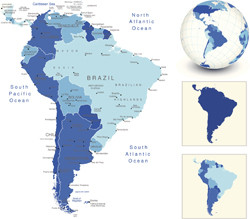Advancing EU-Latin America cooperation in contemporary science
The project LAEL (Latin America and Europe liaison) was established to bring together well-known institutes with distinct but complementary scientific interests and experience. Efforts provided a forum for the exchange of staff and young students and researchers, fostering scientific collaborations among more senior scientists and providing opportunities to pursue specific projects in key emerging fields. Participating institutions were selected to offer a panel of know-how, relevant experience, technology and interactions with external entities (mostly biotechnological in nature). The end goal was to enhance cooperation between Europe and Latin America in key developing fields of contemporary science. LAEL was designed to give early-stage researchers and students common, general and advanced background training. It proposed opportunities enabling the pursuit of specific projects in areas young individuals aspired to specialise in during their professional life. Although financial difficulties burdening the Latin American countries involved did not allow many exchanges and activities to be realised, some exchanges did take place. Conferences and meetings were organised, and a yearly appointment with the Neurobiology Summer School at SISSA (Italy) and the SCoNe Summer School in Cognitive Social Sciences was established. The initiative's outcomes support more open-minded scientists who can carry out original and competitive studies and successfully participate in the development of research and training in underdeveloped areas.



